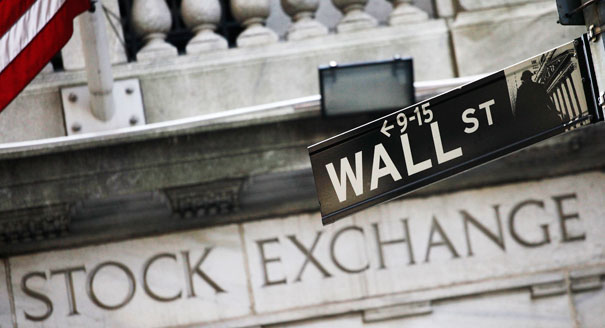"Fuck the whole government, only what you can do is tax the people." -Irwin GoodmanIn the edge of the upcoming year of Finland's 100th birthday, we shall remember the most spectacular achievements of this modest nation: The Winter War, Simo Häyhä, sauna, salmiakki, Koskenkorva, Salmiakkikoskenkorva, 1995 Men's World Ice Hockey Championships and Saara Aalto. In the field of economics, technology and business, nothing has compared to Nokia, KONE, Rovio and Supercell in the past.
Currently the nation is thrilled about the growing mobile game industry, the production of Mercedes-Benz A-class cars in the car-factory of Uusikaupunki, orders made by Meyer from the dockyard of Turku, investments made by the Chinese to the forest industry and the construction industry, encouraged by the low interest-rates.
Anything that would even remotely seem to contribute the economics growth in Finland is currently a matter of joy and happiness. According to the latest report of the International Monetary Fund, Finland was only 20. most competent country in the world, behind Sweden, Norway and Denmark. The growth-rate of the economy is currently one of the slowest in the Eurozone.
The latest SOS-government, led by the Prime Minister Juha Sipilä, has decided to tackle the issues in the Finnish economy by lowering the corporate-tax rates and introducing some radical cuts in the social welfare. All of these actions are hoped to decrease the budget deficit and to increase the competitiveness of Finland in the global economy.
The labor markets have been considered many times as the problem for Finland. The Unions in Finland have considerable amount of bargaining power when the collective labor agreements are being made. The wages are highly sticky, thus also are the labor markets. This stickiness tends to make Finland relatively undesirable subject for foreign direct investments.
The cuts in the social welfare are done to increase incentives for people to quit enjoying the social welfare benefits and try to employ themselves. The task is relatively hard, when the wages are relatively high and the firms don't have enough resources to employ people anyway, even though their operations would demand more labor. That's why there is currently much fuss going on with the individual firms' ability to negotiate their own terms of labor with a wage-rate, that would increase the labor productivity and possibly even create more employment when combined to the tax-cuts.
But I doubt that this would be the solution for everything.
The recent Nobel Prize-winner Bengt Holmström, in collaboration with economists Sixten Korkman and Vesa Vihriälä, has introduced an interesting cause for the relatively slow growth of the Finnish economy. And that cause is the Finnish culture itself.
We Finns tend to be modest, risk-averse and we tend not to appreciate ourselves enough. We tend not to believe in our own capabilities and we deny ourselves from learning from the others' mistakes.
Could that be the explanation on why the economy of Sweden is doing better at the moment than the economy of Finland? Is that the reason why Sweden has 29 Nobel Prize-winners and Finland has only 5? That's why Sweden has won the Eurovision Song Contest 6 times and Finland only once?
Before you all start judging me as a victim of 17th Century Svecoman movement, let us consider our everyday actions, in the small scale. If you have a decent amount of savings, where are you going to put it? You're probably going to open a savings account to your local bank and keep it there, safe and sound. Because you are a risk-averse and probably afraid of the next WinCapita, you are not going to put your money on risky shares or funds. And that's perfectly alright.
If a competition is organized in your local competition and the winner has to have a highly innovative idea in order to win, would you participate? Would you be interested of putting the effort for the competition, and would you believe that you would have an actual chance of winning? I'm not sure about you, but I wouldn't dare necessarily to participate, since I would consider that there's always someone better than me.
See the case what's been pulled out here? Individual behavior is transformed to the general in economics. Economics presumed that all individuals tend to behave in the same way. The behavior becomes a rule.
Investments for shares, for instance, give the firms and corporations abilities to raise capital, increase their resources and even possibly employ more. In return, if the business is going well, the firms are giving the shareholders dividends and better profits that would be given in a bank account. Vice versa, if the business is going badly, you are going to lose some of your money. In Sweden and USA for example, savings for shares are a way more common than in Finland.
Innovations for new businesses and technologies won't arise by themselves. They require brace people, who believe in themselves and their ideas. Innovations won't arise by a message from the government that states "Go on, start innovating now, please." Innovations come from the countries like USA and Sweden, where people think that they can seriously be the best. Why can't we?
I'm not saying what you, me and everyone else ought to do to make our country a better place to live. I'm just saying that the Finnish problems might locate deeper in our minds and behavior than the politicians think. Maybe the problems our economy is facing can't all be solved by cutting social welfare benefits and by introducing tax reductions and easements to the labor markets.
Maybe the problem requires a whole different mind-set.
Text: SW
Pictures don't belong to me




















